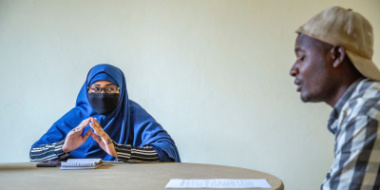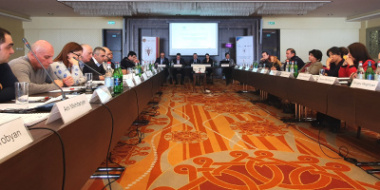Somalia: After a Constitution, What Next?
“Whenever I visited Mogadishu before, I wouldn’t be allowed to leave the airport,” says IDLO’s Somalia representative in the region, Adam-Shirwa Jama. “These days, it’s a little easier and I can even venture out for meetings”.












